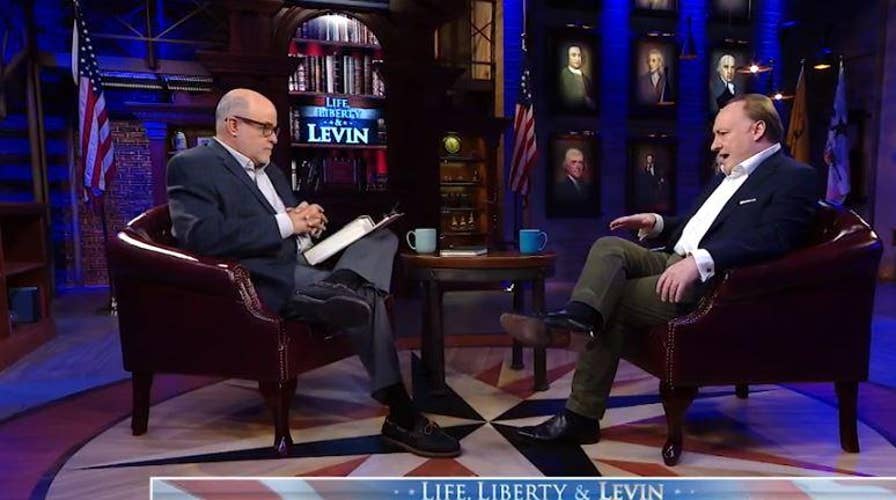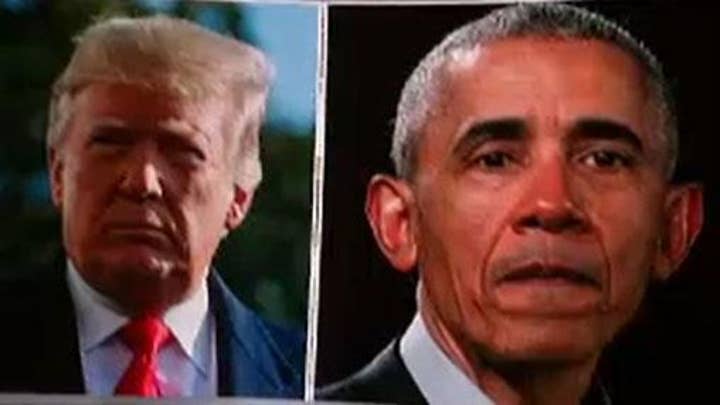UK historian: Why Americans should care about Winston Churchill
UK historian: Why Americans should care about Winston Churchill
Historian Andrew Roberts says there are many reasons Americans should value the life and legacy of Winston Churchill, Britain's prime minister during World War II.
Roberts told Mark Levin in an interview airing Sunday at 8 p.m. ET on "Life, Liberty & Levin" that Churchill exhibited the qualities that all nations should look up to.
"I think is an absolutely essential question at a time when leadership is such an important aspect in the world today," he said. "I think that Churchill enunciated so many of the most important statements that still need to be made."
Host Mark Levin pointed out that both President Donald Trump and Israeli Prime Minister Benjamin Netanyahu both have busts of Churchill displayed prominently in their offices.
SEAN HANNITY: WHAT DID OBAMA KNOW ABOUT RUSSIA INVESTIGATION AND WHEN DID HE KNOW IT
Roberts, the author of the critically acclaimed biography "Churchill: Walking with Destiny," told Levin that Americans should look for leaders with similar moral courage as Churchill -- who bounced back from a massive blunder in World War I that Roberts said brought Churchill to the brink of committing suicide.
In 1915, Churchill -- then First Lord of the Admiralty -- sent an expedition to the Dardanelles in Southeastern Europe with the goal of knocking the Ottoman Empire out of World War I. However, the attack was easily repulsed by Turkish troops and Allied forces lost six ships and more than 140,000 troops.
"If it had come off [successfully], it would have been one of the great strategic genius moves in the history of warfare," Roberts said of the Dardanelles campaign.
CLICK HERE TO GET THE FOX NEWS APP
"But he [Churchill] did come back from it largely through his extraordinary eloquence. The government didn't want to have him on the opposition benches, so they brought him back into the cabinet [as Minister of Munitions] in 1917," Roberts added. "I think that he showed different qualities of leadership that we desperately need."
Roberts said Americans should also remember Churchill's 1946 "Iron Curtain" speech in Fulton, Mo., in which he had the foresight to point out the potential dangers of the postwar Soviet Union.
"He went out and said what he believed. And he stuck to it," Roberts said. "And that's something I think that is not just [for] the 1930s. That's, for all time, a great leadership quality."
Roberts said that Churchill's life should not only be a model for political leaders but those in business as well.
Churchill died in 1965 at the age of 90.










































